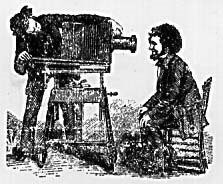Our two sources were almost opposite. While our reader packet only covered American Cultural Studies and Media studies in depth the book covered American, Canadian, French, and technology C.S. a little, and south Asian C.S. and Orientalism a ton. Our packet talked about numerous people of influence on American C.S. including, but not limited to, Fredierick Jackson Turner, Gene Wise, Henry Nash Smith, Leo Marx, Hannah Arendt, Marshal McLuhan, and Roland Barthes. The book didn’t focus as much on individuals, but overcastting movements for example Post modernist in America, Canada’s identity struggle (between English, French, and native languages), Australia’s effort to be more British, the French’s identity struggle, and the South Asian CSDS. In America several events, the GI bill and American’s growth in power, jump started the American Cultural Studies. Once the US became the Worlds sole super power American’s view of themselves changed again.
1) Keywords: Education:
Higher education what some claim jump started cultural studies in Britain. It also helped further the movement in America. “Few would deny that education is both an individual and a social good.” By reaching higher academically new thoughts and disciplines are created, a big reason American cultural studies got under way. Also, education helps define cultures for the individual and the community. “It can lead us forth into the relatively homogeneous cultural values and expectations of a traditional community, or into the complexities of hybrid identities and conflicted values of a culturally diverse society.”
2) Wikipedia: Hegemony: http://en.wikipedia.org/wiki/Hegemony
Hegemony is a word used to describe the dominance of one social group over another. The ruling class obtains “some degree of consent from the subordinate, as opposed to dominance purely by force. It is used broadly to mean any kind of dominance, and narrowly to refer to specifically cultural and non-military dominance, as opposed to the related notions of empire and suzerainty.” Antonio Gramsci created the more widely known accounts of Hegemony. “According to Gramsci, hegemony consists of socio-political power that flows from enabling the "spontaneous consent" of the populace through intellectual and moral leadership or authority as employed by the subalterns of the State.”
3) Leo Marx: http://web.mit.edu/sts/faculty/info/Marx_Leo-css.html
Leo Marx was/is not a decendant of the famous Carl Marx but he too had an impact on Cultural Studies. “His work examines the relationship between technology and culture in 19th and 20th century America.”
--Clayton
announcements
This blog was created by and for students in an Introduction to Cultural Studies class at the University of Washington. Through an investigation of urban experience and representation--in theory, in graphic novels and in our own "readings" of Seattle's University District--we considered the formation and history of cultural studies as an (anti)discipline, with a special emphasis on the questions, "What does cultural studies do, and how do you do cultural studies?"
If you'd like to know more about the class, the blog or our U-District artifact project, please contact Gabrielle Dean: gnodean@u.washington.edu.
If you'd like to know more about the class, the blog or our U-District artifact project, please contact Gabrielle Dean: gnodean@u.washington.edu.
Wednesday, April 16, 2008
Subscribe to:
Post Comments (Atom)
blog archive
-
▼
2008
(92)
-
▼
April
(35)
- Identity in City of Glass
- History of Origins: Race Studies
- History of Origins: Gender Studies
- History of Origins: Gender Studies
- History of Origins: America
- History of Origins: Race Studies
- History of Origins: Gender Studies
- History of Origins: Race Studies
- History of Origins: Race Studies
- History of Origins: Media and Science
- History of Origins: Media and Science
- History of Origins: Gender Studies
- History of Origins: Media and Science
- History of Origins: European Theory
- History of Origins: European Theory
- History of Origins: European Theory
- History of Origins: European Theory
- History of Origins: European Theory
- History of Origins: America
- History of Origins: European Theory
- History of Origins: America
- History of Orgins: European Theory
- History of Origins: European Theory
- History of Origins: Great Britain
- History of Origins: Great Britain
- Cultural Studies in Britain
- Cultural Studies in Britain
- History of Origins: General
- History of Origins: General
- History of Origins: General
- History of Origins: General
- "Orientalism"
- Are You an Author?
- "Paris, Capital of the 19th Century"
- READING: A WEB MODEL
-
▼
April
(35)

No comments:
Post a Comment